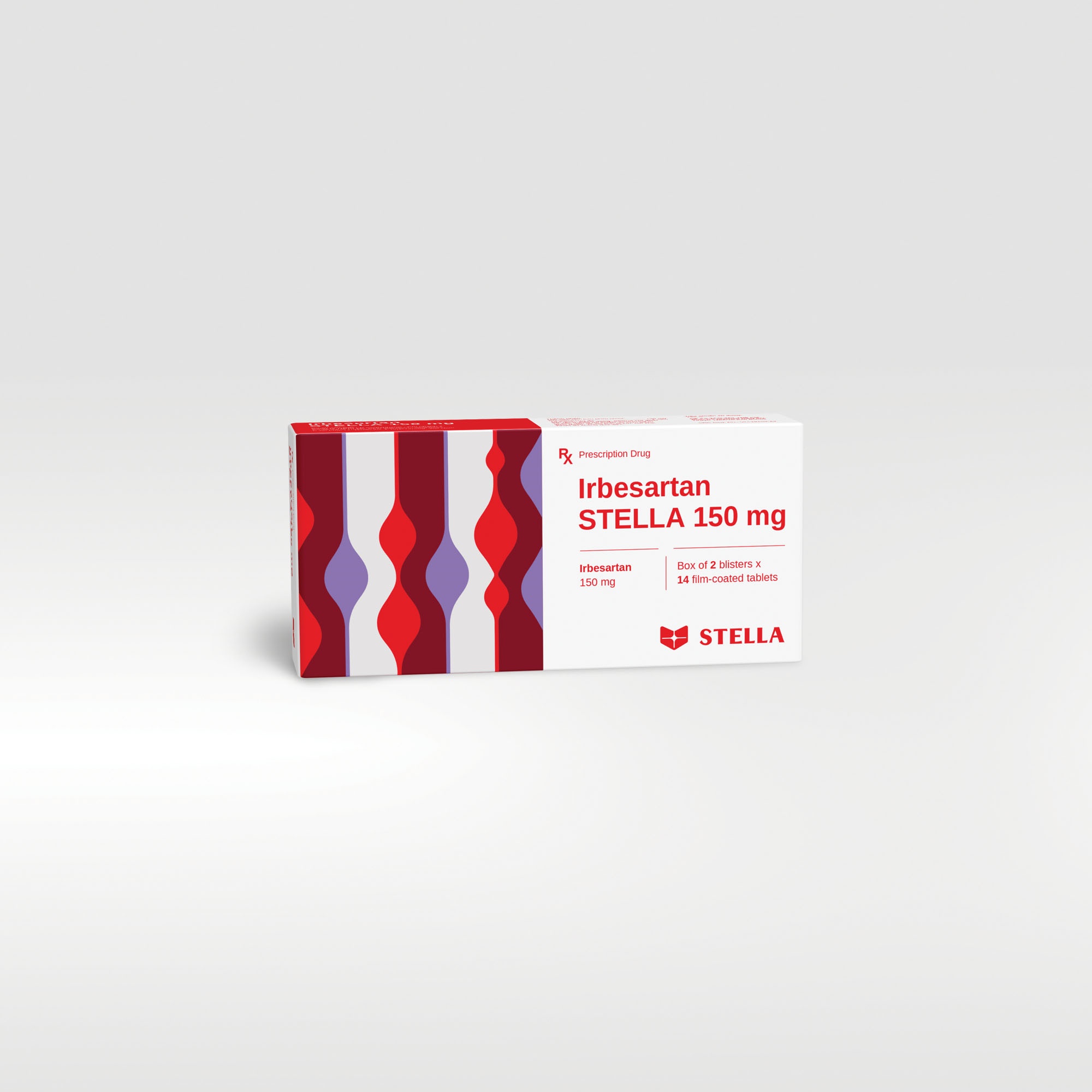Indications
- For the treatment of essential hypertension in adults.
- For the treatment of renal disease in adult patients with hypertension and type 2 diabetes mellitus as part of an antihypertensive medicinal product regimen.
Dosage
- The usual recommended initial and maintenance dose is 150 mg once daily.
- Irbesartan at a dose of 150 mg once daily generally provides a better 24 hour blood pressure control than 75 mg. However, initiation of therapy with 75 mg could be considered, particularly in haemodialysed patients and in the elderly over 75 years.
- In patients insufficiently controlled with 150 mg once daily, the dose of irbesartan can be increased to 300 mg, or other antihypertensive agents can be added. In particular, the addition of a diuretic such as hydrochlorothiazide has been shown to have an additive effect with irbesartan.
- In hypertensive type 2 diabetic patients: Initiated at 150 mg irbesartan once daily and titrated up to 300 mg once daily as the preferred maintenance dose for treatment of renal disease.
Special populations
- Renal impairment: No dosage adjustment is necessary in patients with impaired renal function. A lower starting dose (75 mg) should be considered for patients undergoing haemodialysis.
- Hepatic impairment: No dosage adjustment is necessary in patients with mild to moderate hepatic impairment. There is no clinical experience in patients with severe hepatic impairment.
- Older people: Although consideration should be given to initiating therapy with 75 mg in patients over 75 years of age, dosage adjustment is not usually necessary for older people.
- Paediatric population: The safety and efficacy of irbesartan in children aged 0 to 18 has not been established. No recommendation on a posology can be made.
For doses not practicable with this medicinal product, use of appropriate strength of other medicinal product is recommended.
Usage
Irbesartan STELLA 150 mg is administered orally, with or without food.














